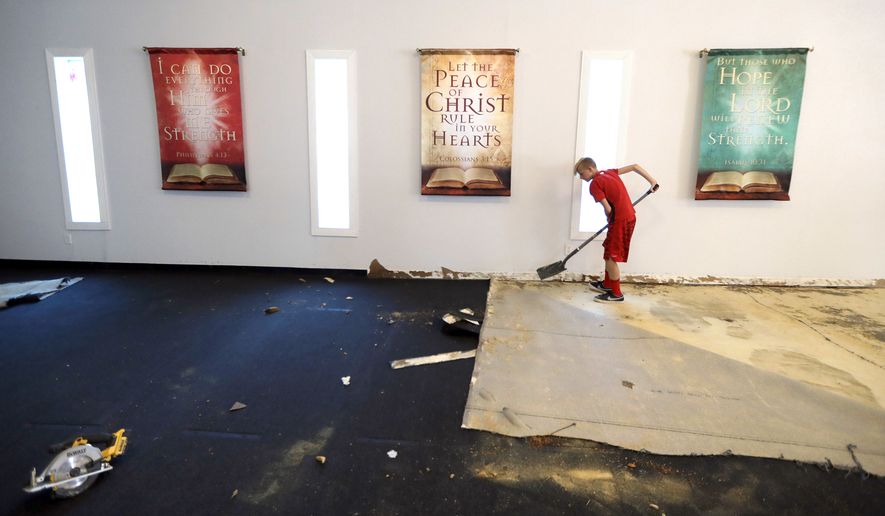Churches for decades have had to fend for themselves when hurricane winds ripped off the chapel roof while the nonprofit YMCA next door — because it’s not religious — pocketed Federal Emergency Management Agency payments to repair similar damage to its building.
That treatment of houses of worship was written out of U.S. law last week.
A provision tucked into the budget deal that President Trump signed into law Friday put churches on equal footing with YMCA, senior centers and other nonprofit groups when it comes to FEMA disaster relief.
The Bipartisan Budget Act made churches, synagogues, mosques and other houses of worship permanently eligible for FEMA’s Public Assistance Program grants, which can pay for the removal of debris and repairs to buildings, parks and recreational facilities owned by nonprofits.
“Congress has delivered a big victory for houses of worship,” said Diana Verm, legal counsel at the nonprofit religious liberty law firm Becket that represented Texas churches and Florida synagogues last year in challenging the FEMA policy. “This is a happy ending for a long story for houses of worship responding to disasters.”
Larry T. Decker, executive director of the Secular Coalition for America, cried foul.
“This bill would rebuild churches by knocking down the wall of separation between church and state,” he said. “It is unconstitutional and unconscionable for Congress to decree that churches are entitled to taxpayer funding.”
The Supreme Court ruled in December that excluding religious organizations from disaster relief violated the First Amendment, prompting FEMA to reverse its policy.
The budget bill cemented the change in law.
The president had championed the cause, Mr. Trump drawing attention to the disparate treatment of houses of worship during the response to Hurricane Harvey in Texas.
“Churches in Texas should be entitled to reimbursement from FEMA Relief Funds for helping victims of Hurricane Harvey (just like others),” Mr. Trump tweeted at the time.
Although the president equated reimbursements for relief efforts with federal aid for storm damage, churches that enter agreements with FEMA to provide relief services were already eligible for reimbursement for those services.
Sen. Roy Blunt, Missouri Republican, introduced the FEMA-church legislation that ended up in the budget bill. He said the role of houses of worship in disaster relief efforts only underscores the disparate treatment they received in eligibility for aid.
“Recent natural disasters have shown how critical houses of worship are in providing essential, and at times life-saving, services when communities need them the most,” he said. “Putting houses of worship on an equal footing with other nonprofits will help ensure they have the resources they need to rebuild after a disaster and continue serving their communities.”
• S.A. Miller can be reached at smiller@washingtontimes.com.




Please read our comment policy before commenting.